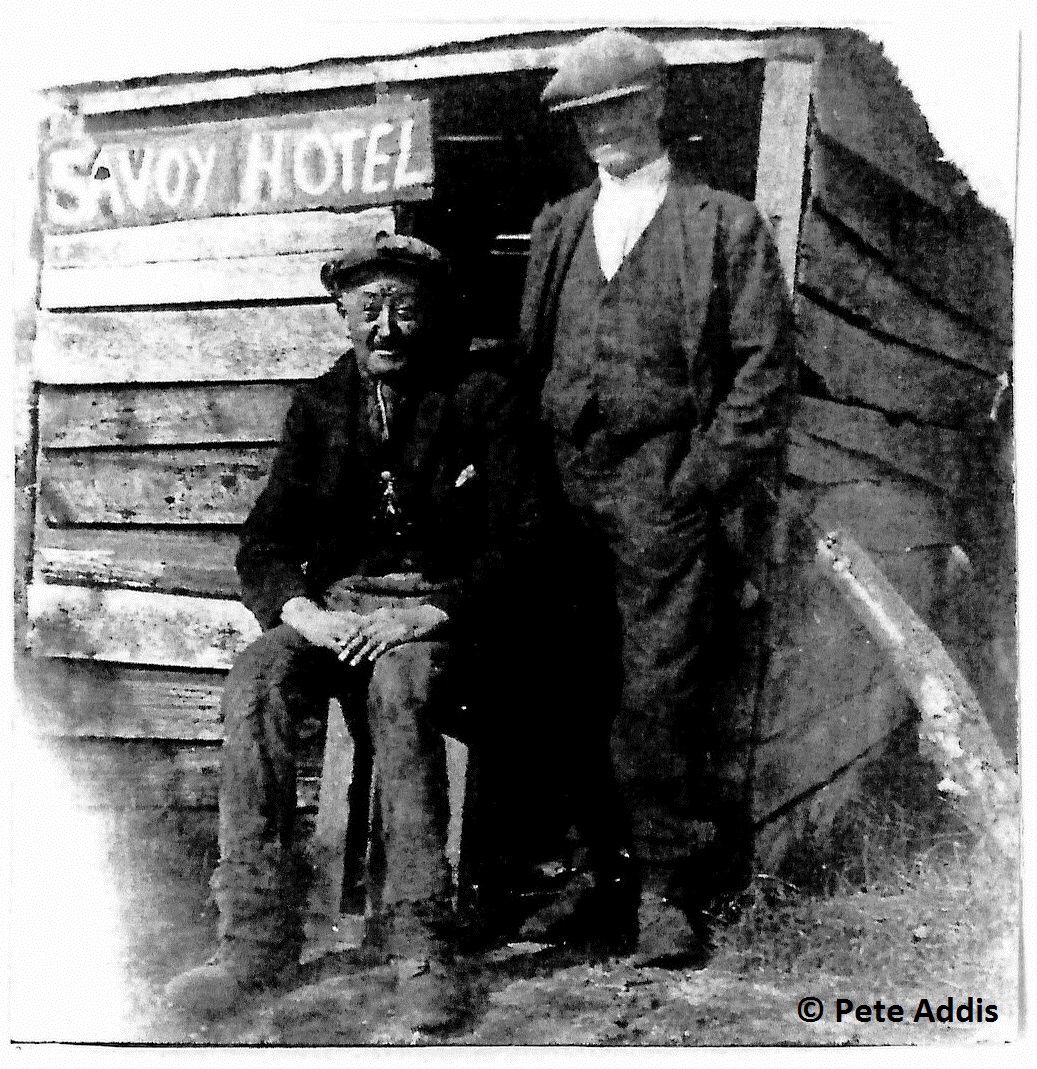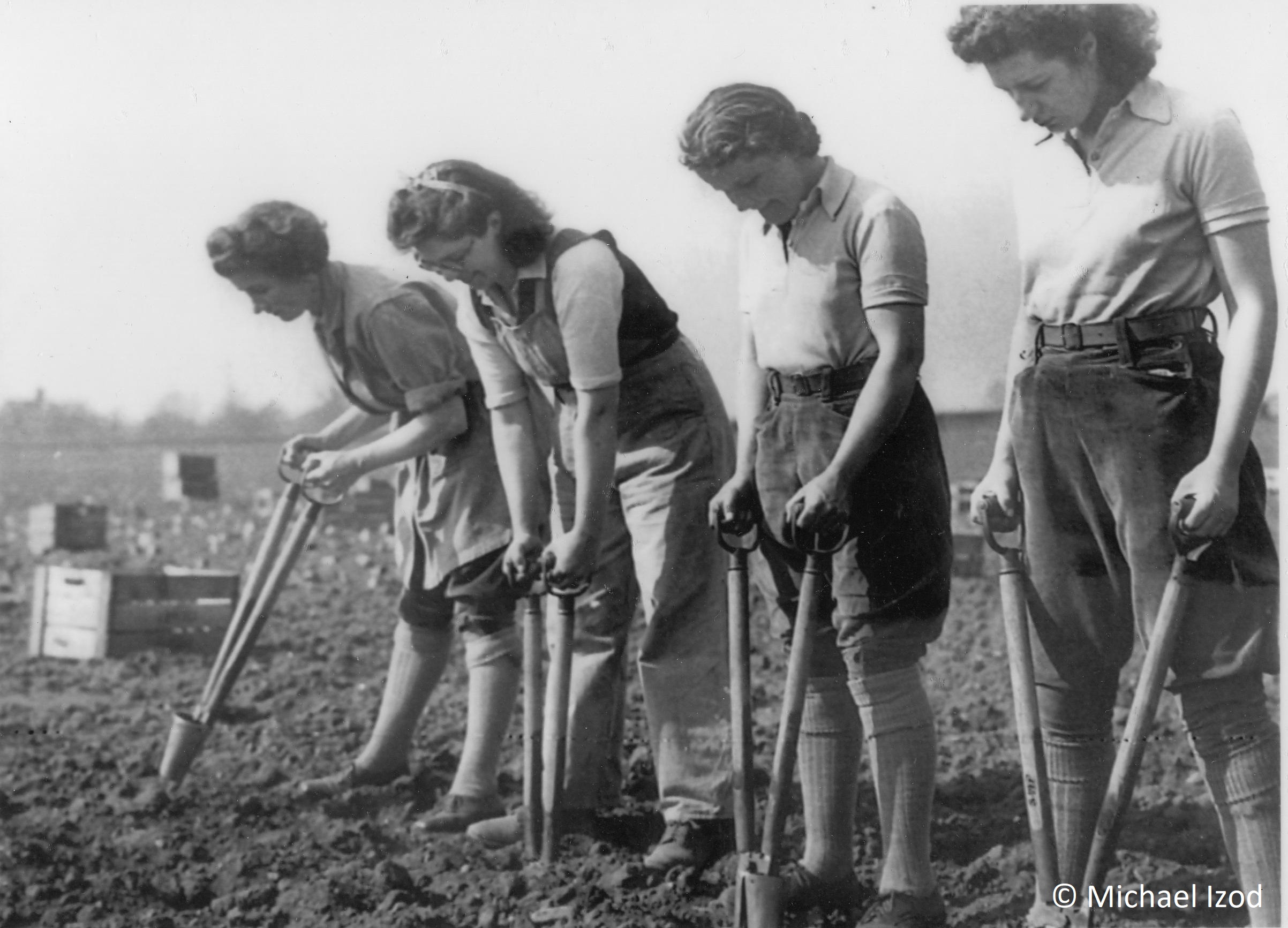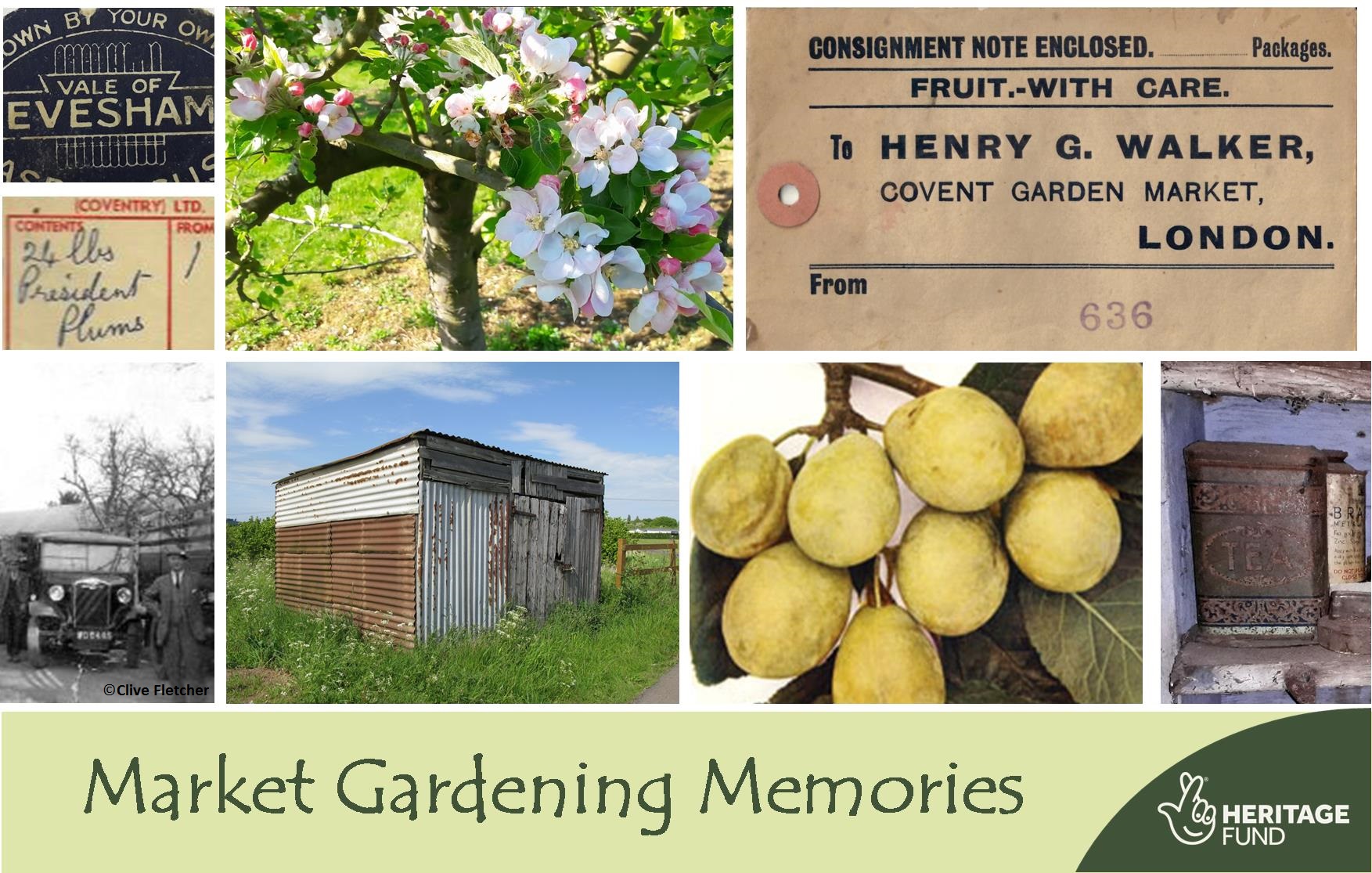Market Gardening Heritage – Recording Memories
- 28th April 2020
It’s one thing to read how things were, or record historic objects and buildings, but it’s quite another to hear people talk about the past and telling their stories. Oral history, recording these personal accounts, is an important part of capturing the past that lies within living memory.
A key aim of the Market Gardening Heritage Project has been to record a rapidly disappearing chapter of local history. Once, the Vale of Evesham was full of market gardeners growing fruit, vegetables, herbs and cut flowers for markets up and down the country. Today only hints remain: orchards have returned to open fields and most of the ‘hovels’ (market gardening sheds) that dotted the Vale have fallen down or been demolished. With personal memories of market gardening’s mid-20th century heyday dwindling, the project has recorded as much as possible before it’s lost.

The ‘Savoy Hotel’ was built by market gardeners in Badsey, near Evesham, to provide shelter whilst out on their grounds. This photo is now the only surviving record of the hovel and its owners’ sense of humour (with kind permission from Pete Addis).
Information in newspapers, archives and books are important (and our team of research volunteers have unearthed fascinating details), but there’s something different about hearing someone recount their story. We hear it in their own way, and often from people who’d never think of writing their memories down in a book. We can hear the way they speak, the tone of voice and emphasis on different words. We can also ask questions and hear them expand on different, previously unrecorded topics.
Having been involved in oral history projects for many years, we know how valuable they are for posterity and that many people appreciate a chance to preserve their memories. One of our largest projects began 20 years ago and has since recorded 200 interviews about WWII, alongside running training sessions and providing support for local groups carrying out their own projects. Maggie, one of our Archivists and instigator of the WWII project, also provides advice and guidance to people in the area through her role as a regional networker for the Oral History Society.
Over the course of the Market Gardening Heritage Project, numerous people got in touch through events and in response to publicity or were recommended to us as fonts of local knowledge. From the start, we were conscious to ensure a good cross section of experiences, topics and places. Most interviews were carried out by local volunteers, who are key to any community heritage project.

Women’s Land Army assisting market gardeners in Fladbury (with kind permission from Michael Izod)
Anyone can record oral histories with a bit of training (it’s important not to miss this step though!). To get the most out of audio recordings, we ran a volunteer training session covering key aspects of oral history interviews, including ethics, forming questions, technicalities of recording, the importance of listening and keeping records. Central to the workshop is putting these skills into practice, to learn what works and how to avoid common pitfalls, by interviewing each other. Over the years we’ve built up many tips to pass on.
Fifteen oral histories have been recorded over the past year. As well as being saved in Worcestershire Archives for the future, clips will be used in the project exhibition, app and resource packs. This will allow listeners to hear people’s stories in their own word. To help us narrow down the best bits, a kind group of volunteers produced detailed summaries of each recording.
What did we find?
From childhood memories of driving tractors to WWII black market tales, the collected oral histories are a wonderful snapshot in to market gardening life and the communities surrounding it. As a sneak preview, here are a few of our favourite clips:
Wallflowers, locally know as ‘gillies’, had a surprising use, as Geoff explains.
Henry recalls how the pub was a prime place for recruiting helping hands.
There’s more to asparagus than meets the eye. Karen describes the art involved in traditional Vale ‘gras.
Keep an eye out for further stories, which we’ll be sharing over the coming weeks!


Tantalising taster excerpts, to encourage further listening and learning.